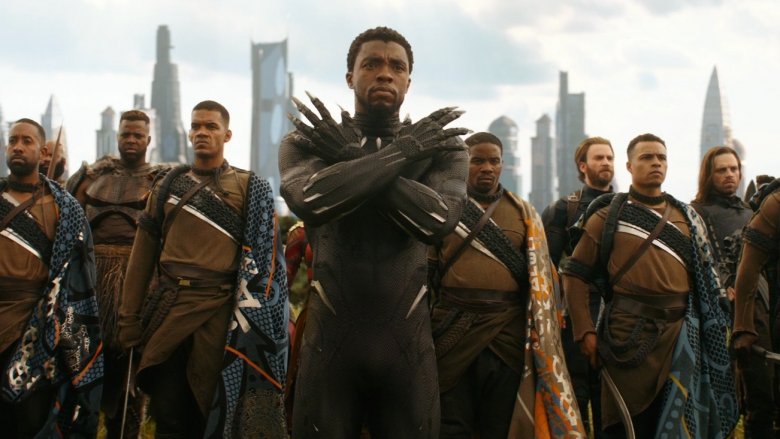Marvel’s ‘Black Panther’ shows the full potential of an ensemble black cast
February 21, 2018
Watching movies was probably my favorite pastime as a kid. Though finding someone who not only represented my physical features, but the positive, realistic attributes of not just my, but my black friends’ and family’s personalities on the big screen wasn’t always the easiest task.
For an article for The Washington Post by David Betancourt, Ryan Coogler talked about how as a young comic book fan, he was in search of representation in the books he loved to read.“I went to the comic book shop that was by my school and asked if they had any black characters.” He found his answer in the marvel comic “Black Panther,” and little did he know that some years later, he’d be directing the first film adaptation of this story that uplifts black people.
“Black Panther” is the latest blockbuster addition to the Marvel Cinematic Universe, and it features an ensemble black cast. Something that’s evidently going over very well with audiences all over the country as according to money.cnn.com, the movie earned a record breaking $192 million in its three-day weekend debut in North America alone. So much for that whole “black actors can’t draw big crowds” preconception that’s been commonplace in Hollywood for years.
The movie follows the story of main character T’Challa (Chadwick Boseman) as he succeeds his father as king of the isolated, technologically advanced fictional African country Wakanda. After his coronation, his first order of business as his alter ego Black Panther is to capture the villainous Klaue, the man responsible for his father’s death. He enlists the help of his ex-girlfriend Nakia (Lupita Nyong’o) and Okoye (Danai Gurira), the leader of Wakanda’s female protectors the Dora Milaje to bring Klaue back to Wakanda to face prosecution.
As they arrive in South Korea to find Klaue, visually stunning and enthralling fight scenes mixed in with a elaborate car chase like you’ve never seen ensue, making for a thrilling spectacle. As the movie progresses, Erik Killmonger (Michael B. Jordan) who was first introduced as working with Klaue to steal an ancient Wakandan relic is revealed to be an even more imposing threat.
Up until now, most superhero movies–and movies in general–only saw black characters as comic relief or sidekicks to white leads. “Black Panther” quite literally flips the script. This film sees black characters and black culture as a central theme, and black people are finally shown as strong, resourceful and intelligent lead characters. Decades overdue, this change in the film industry coincides brilliantly with Black History Month.
Media portrayal of black people in a negative light has largely contributed to the negative stereotypes black people face everyday. A movie of this scale celebrating all the positive aspects of black people and black culture certainly isn’t going to solve racism, but representation matters. “Black Panther” delivers that emphatically. Director Ryan Coogler said it best in an interview: “The Black Panther is a man; he’s a king; he’s a ruler; he’s a leader, and he answers to no one.”




















